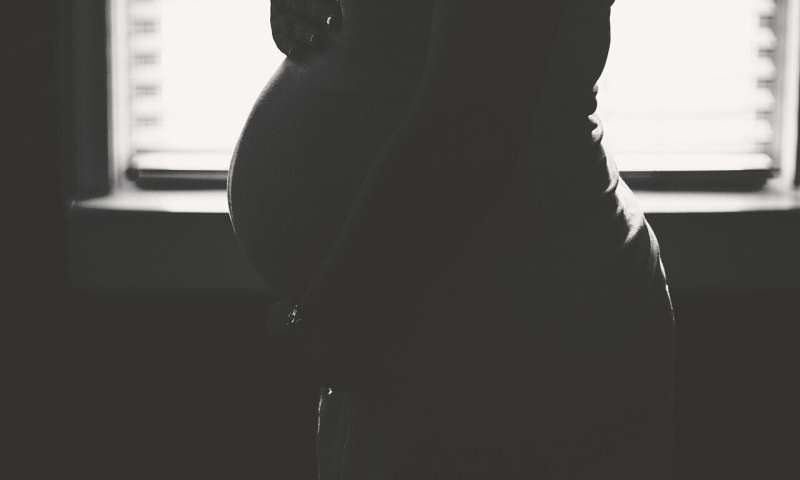
Study Finds Symptoms of Depression During Pregnancy Linked to Specific Brain Activity
September 22, 2024

About 80% of women experience the "baby blues" after giving birth. It's usually a brief period of depression that goes away within a few days. But about 1 in 7 women develop postpartum depression, a more serious depression that can affect the mother's relationship with her baby and have long-term consequences. These women seem unable to regulate the negative emotions that can follow childbirth.
A group of European researchers has discovered that in healthy pregnant women, the activity of a specific area located deep in the brain is linked to the regulation negative emotions and the tendency to develop depressive symptoms. The researchers hope that analyzing this activity, as well as emotion regulation, will help indicate which women are at risk for postpartum depression.
When presenting this work at the congress from ECNP in Milan, presenter Franziska Weinmar (University of Tübingen, Germany) said: "This is one of the first trials to compare brain activity in pregnant and non-pregnant women. The ability to regulate emotions is essential for mental health, and this interaction was our starting point.”
The results are published in the review Psychiatry and Clinical Psychology.
The researchers took 15 healthy pregnant women with very high estrogen levels (due to pregnancy). The pregnant women were 5 to 6 months into their first pregnancy. These women were compared to 32 non-pregnant women, whose estrogen levels fluctuated naturally, as they do during the menstrual cycle.
Each woman was placed in an MRI scanner and shown disturbing/upsetting images. They were then asked to regulate their emotional state using cognitive reappraisal, a technique where the person aims to alter their emotional state by changing their thoughts and trying to reinterpret the situation.
Franziska Weinmar added: "We asked all the women in the study about how they managed their negative emotions and found that the pregnant women in our study reported that they rarely tried to change their emotional perspective using cognitive reappraisal, unlike non-pregnant women. However, when asked to regulate their emotions during an MRI scan, they were able to manage their emotional state just as well as non-pregnant women.
"Pregnant and non-pregnant women are equally capable of managing their emotions by deliberately trying to reinterpret a situation, but for pregnant women it seems to be more difficult to take this step towards conscious control of these negative emotions, although they can manage them in other ways.
"We found that in MRI scans, pregnant women who showed more activity in the amygdala when regulating their emotions were less successful in controlling their emotions. In addition, pregnant women with this greater activity in the amygdala reported more symptoms of depression."
Franziska Weinmar added: “We have to be careful in interpreting these results – this is a small sample and we are the first to undertake this work. However, if larger studies confirm higher amygdala activity in women at risk of postpartum depression, we could specifically assess and target these women during this vulnerable phase – for example, by training them to regulate their emotions. This could be an approach to dealing with the baby blues.”
Dr Susana Carmona (Gregorio Marañón Hospital, Madrid) commented: “Studies like this are essential to understand one of the most extreme physiological processes a human being can experience: gestation. It is surprising how little we still know about it. Recently, the FDA approved the first treatment for postpartum depression . »
"However, we still have a long way to go to characterize what happens in the brain during pregnancy, identify biomarkers that can indicate the risk of developing perinatal mental disorders, and design strategies to prevent maternal and child suffering during the delicate and critical peripartum period," added Dr. Carmona, who was not involved in this work.
More information : Franziska Weinmar et al., Neural emotional regulation during pregnancy—a fMRI study investigating a transdiagnostic mental health factor in healthy first-time pregnant women, Psychiatry and Clinical Psychology (2024). DOI: 10.1101/2024.09.13.24313410. On medRxiv: www.medrxiv.org/content/10.110 … 024.09.13.24313410v1
Quote: Study finds symptoms of depression during pregnancy linked to specific brain activity (2024, September 21) retrieved September 21, 2024 from https://medicalxpress.com/news/2024-09-symptoms-depression-pregnancy-linked-specific.html
This document is subject to copyright. Apart from any fair dealing for the purpose of private study or research, no part may be reproduced without written permission. The content is provided for informational purposes only.
